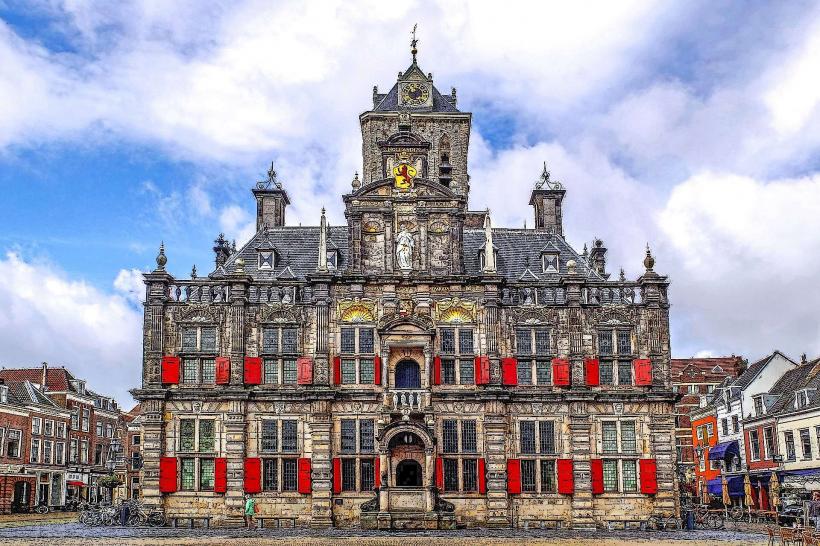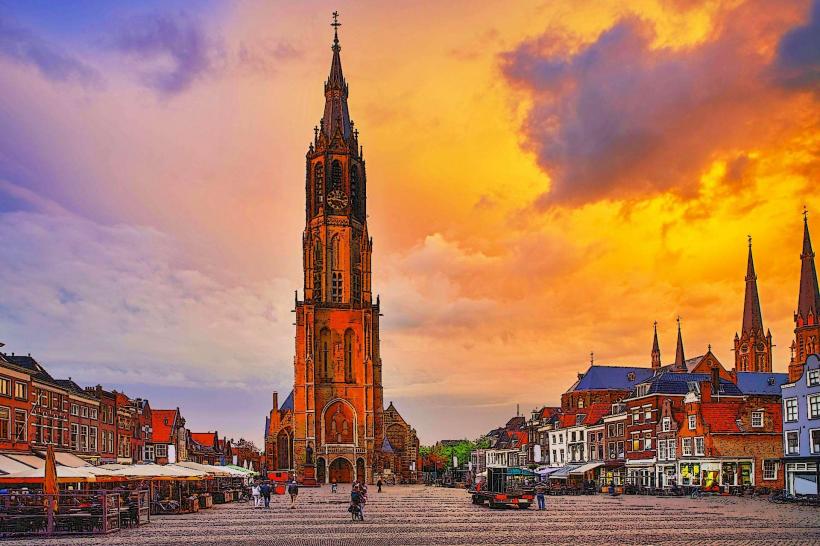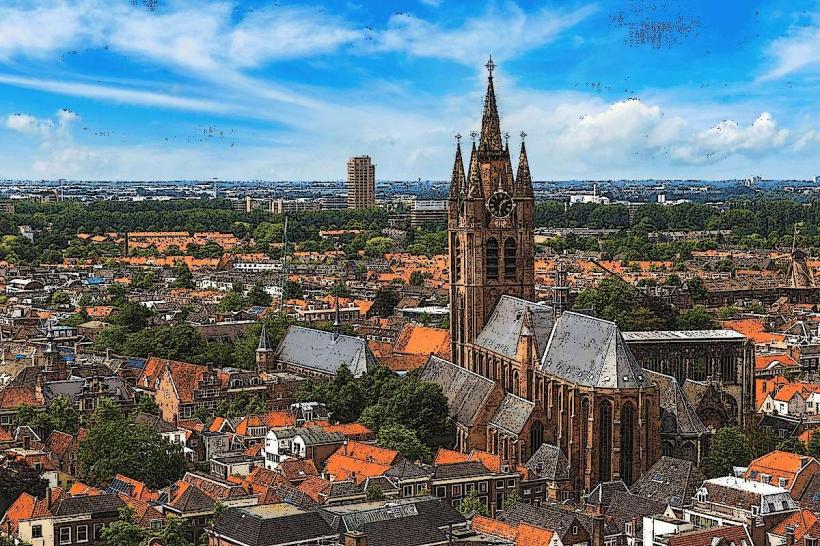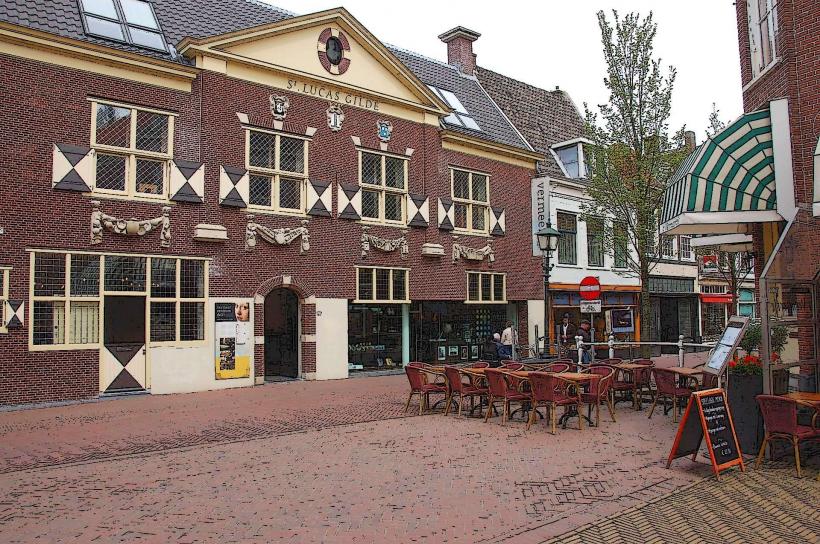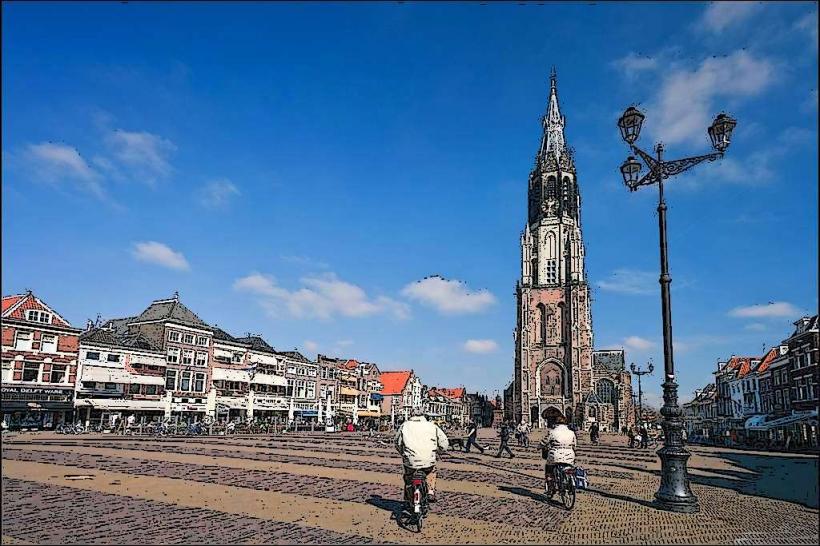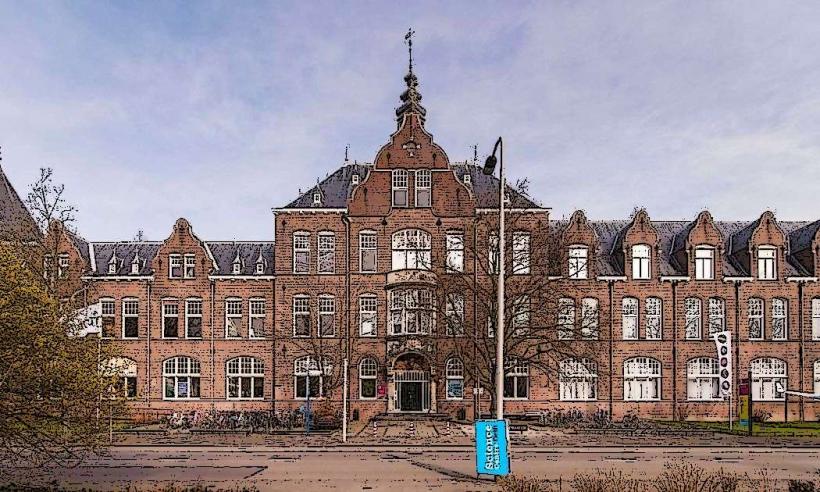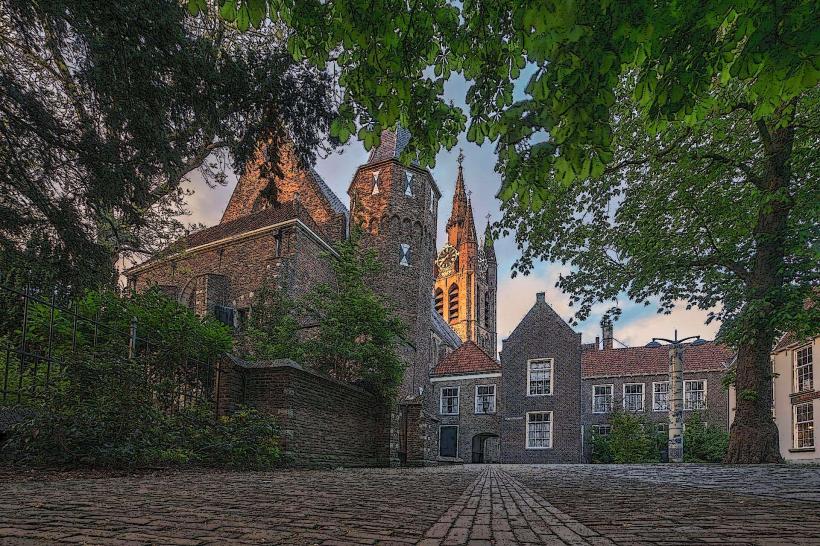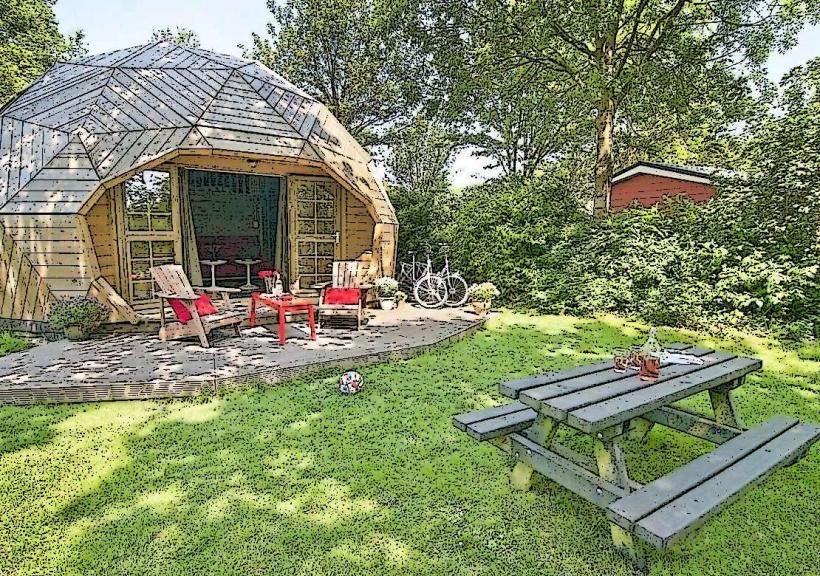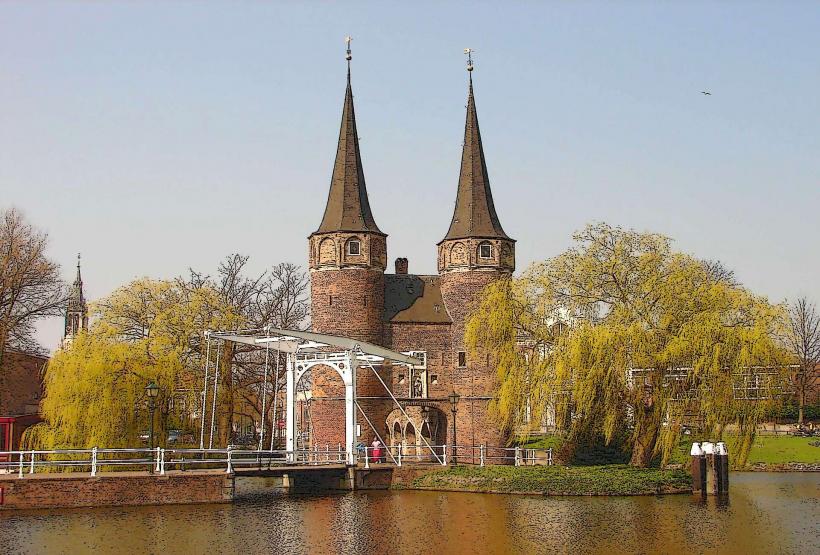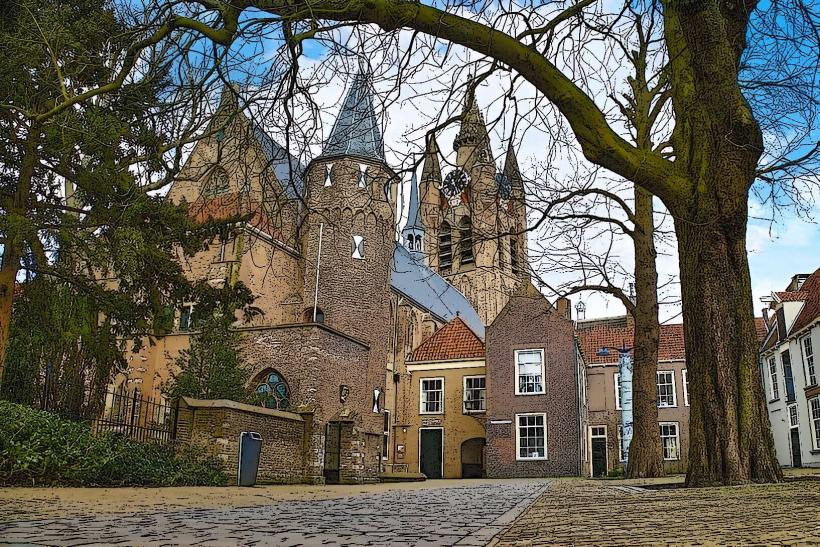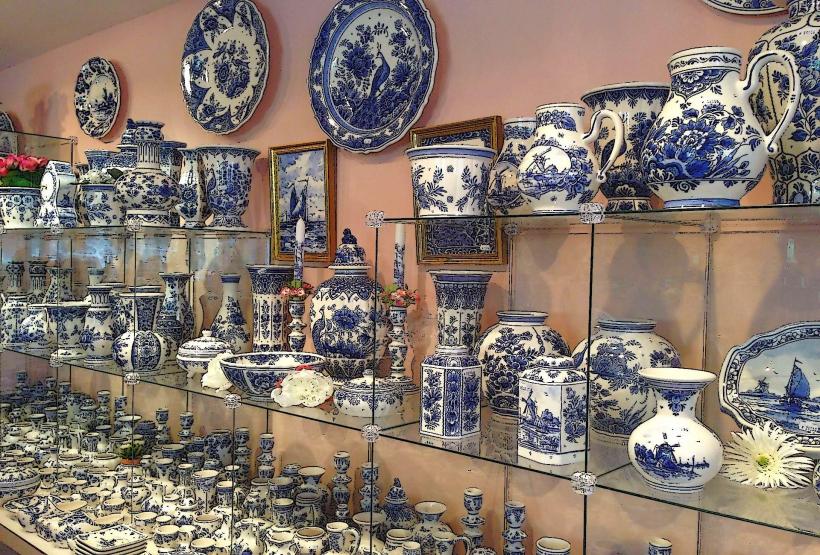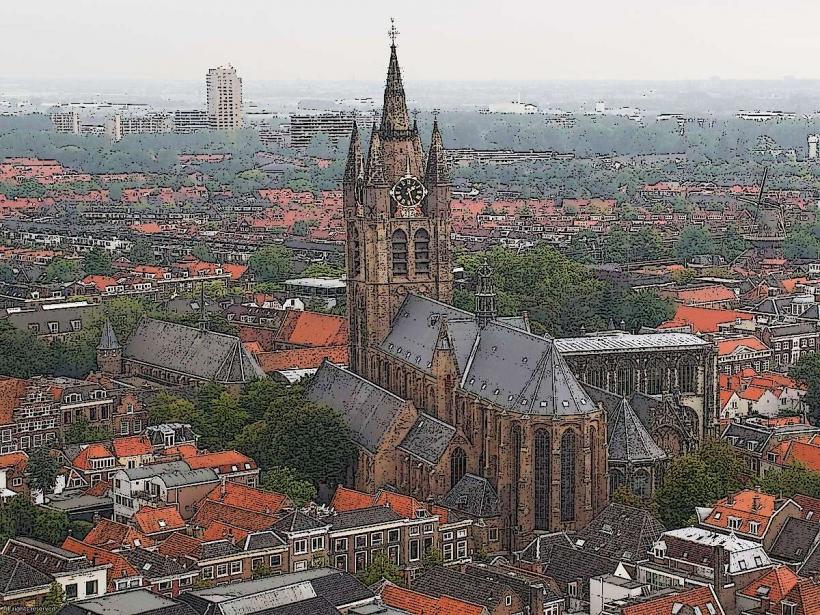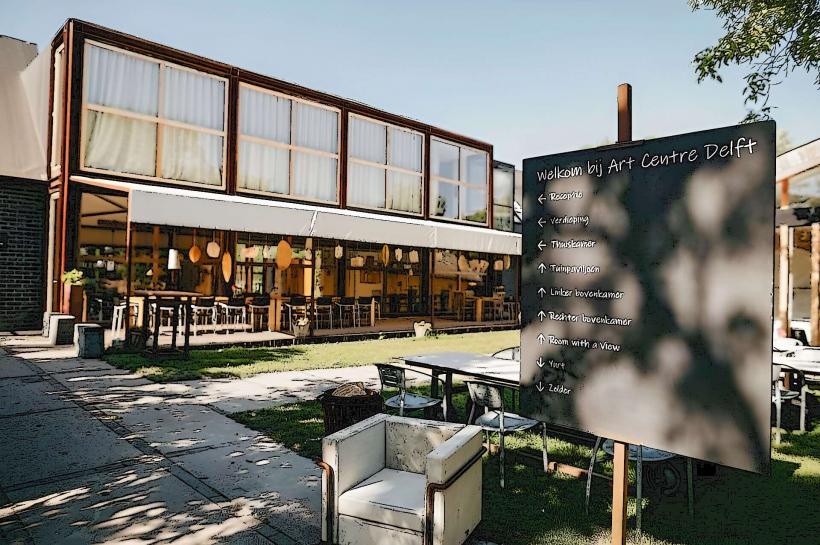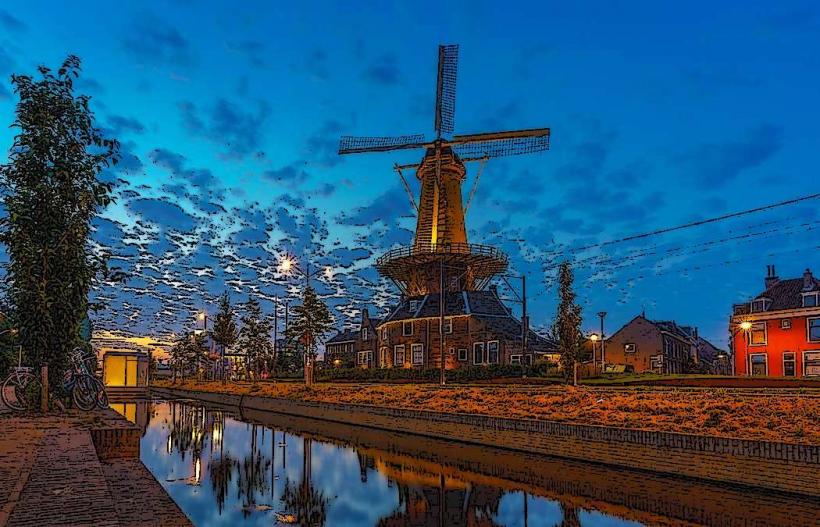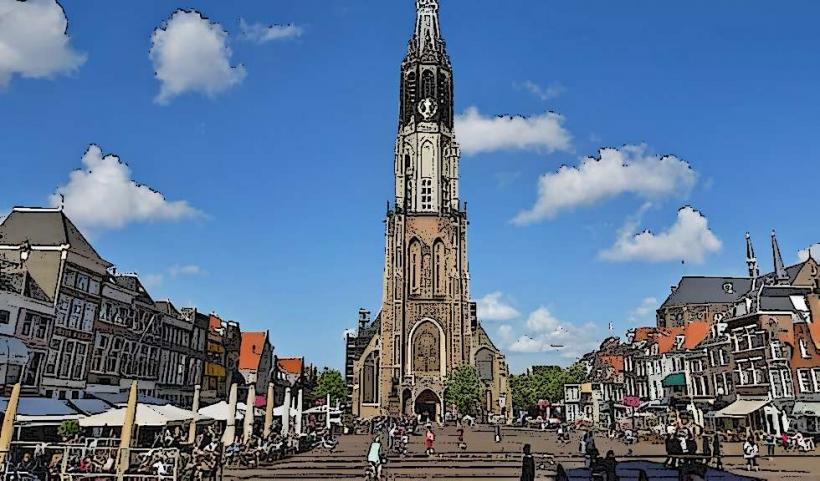Information
Landmark: St. Bartholomeus ChapelCity: Delft
Country: Netherlands
Continent: Europe
St. Bartholomeus Chapel, Delft, Netherlands, Europe
The St. Bartholomeus Chapel (in Dutch: Sint-Bartholomeuskapel) is a historic chapel located in Groningen, the northern Netherlands. Though it may not be as widely known as some of the city’s larger churches, it holds significant historical and architectural value, contributing to the rich heritage of the region.
Overview of St. Bartholomeus Chapel
Location: The St. Bartholomeus Chapel is situated in the city center of Groningen, specifically in the Noorderhaven area, a district known for its historical significance and beautiful canals.
Name and Patronage: The chapel is dedicated to Saint Bartholomew, one of the twelve apostles of Jesus Christ. He is often depicted as a patron saint of healing and protection, especially for the sick and the poor.
Historical Background
Early Origins: The exact founding date of St. Bartholomeus Chapel is unclear, but it is believed to date back to the Middle Ages, around the 12th or 13th century. During its early years, the chapel would have been a small, humble place of worship serving the local community.
Monastic Ties: It is thought that the chapel may have originally been part of a monastic complex or associated with a religious order, as was common in the medieval period. During the Reformation in the 16th century, many churches and chapels in the region underwent significant changes, with a move towards Protestantism and the destruction of Catholic religious symbols. However, St. Bartholomeus Chapel managed to survive this period and remains a testament to the city’s medieval religious history.
Restoration and Preservation: Over the centuries, the chapel has undergone numerous restorations and repairs, especially following damage from wars and natural disasters. One of the most significant renovations occurred in the 19th century, which helped restore the chapel’s structure and ensure its continued use as a place of worship and cultural interest.
Architectural Features
Style: The St. Bartholomeus Chapel is built in the Romanesque architectural style, a common style for churches in medieval Europe. The Romanesque style is characterized by round arches, thick stone walls, and relatively simple, functional designs.
Exterior: The chapel has a modest but charming stone façade, with a small tower and a simple, unassuming entrance. Its design reflects the practical nature of medieval religious buildings in the region.
Interior: Inside, the chapel retains much of its original medieval charm, with a combination of historic furnishings and modern adaptations. The interior is often noted for its peaceful and intimate atmosphere, which provides a sense of calm and reverence. The chapel also features some original wooden beams and stonework, which are indicative of its age.
Altar and Artworks: While the chapel is relatively simple, it houses an altar and several religious artworks. Some of the artwork is older, possibly from the Renaissance or Baroque periods, reflecting the changing artistic styles of the time.
Windows: The chapel includes some stained-glass windows, adding to its religious ambiance. The windows feature scenes from the Bible and life of Saint Bartholomew, serving as both decorative and didactic elements for worshippers.
Modern Role and Use
Religious Functions: Though the St. Bartholomeus Chapel has a rich historical past, it continues to serve as a place for worship, especially for smaller congregations. It is used for weekly services, weddings, and other religious events. It is also open to visitors who wish to experience its quiet beauty and historical significance.
Cultural and Community Events: In addition to its religious functions, the chapel hosts cultural events such as concerts, exhibitions, and lectures. The intimate nature of the chapel makes it an ideal venue for small, acoustically rich events like classical music performances and choir concerts.
Tourism and Education: St. Bartholomeus Chapel is an important part of Groningen’s cultural heritage and attracts visitors interested in history, architecture, and religious life. The chapel is often included in walking tours of the city, particularly those focused on Groningen’s medieval and religious past.
Location and Accessibility
Proximity to Other Landmarks: The chapel is located in close proximity to other significant historical and cultural sites in Groningen, including the Noorderhaven Canal and the Groningen Museum. Visitors can easily explore the chapel as part of a broader tour of the city.
Accessibility: The St. Bartholomeus Chapel is open to the public during certain hours for both religious services and as a historical site. It is also accessible by foot or bicycle from the city center, making it easy for visitors to incorporate a visit into their exploration of Groningen.
Conclusion
The St. Bartholomeus Chapel in Groningen is a hidden gem that offers a glimpse into the city’s medieval past and religious history. Its simple yet charming architecture, combined with its role in the community, makes it a significant landmark in the city. Whether you are interested in its historical context, architectural features, or simply seeking a peaceful place to reflect, the St. Bartholomeus Chapel remains an important and beautiful part of Groningen's cultural fabric.

